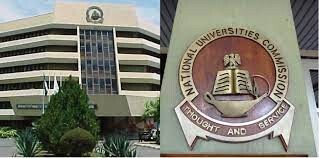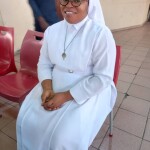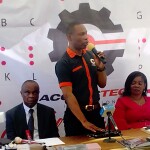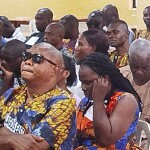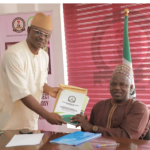By Abass B. Isiaka
Introduction
Nigeria has been making efforts to provide education for people with disabilities despite facing challenges due to limited resources. The country has introduced several policies aimed at promoting inclusive education for all, starting from 1977 to the most recent policies, such as the National Policy on Special Needs Education in 2015 and the National Policy on Inclusive Education in 2017. Two years later, Nigeria also passed a law called the Prohibition of Discrimination Against People with Disabilities, which requires schools, hospitals, and other organisations to be inclusive and cater to the needs of people with disabilities.
Like other postcolonial states, Nigeria’s educational history is incomplete without the double-helix role of the missionaries. This is why missionaries' path-dependent segregation of people with special needs from mainstream schools in the 1970s has continued to shape subsequent policy directions on special education in Nigeria. The 2017 National Policy on Inclusive Education, however, trotted towards providing a unified, inclusive system in line with the new thinking on inclusive education globally by recognising the markers of difference that all students bring to the classroom. The question of how institutions should translate these policies remains. To uncover how universities do disability inclusion policies beyond the authorial intentions of their policy documents, I have been researching the various moments of policy enactment at three Nigerian universities for the past three years.
Institutional Strategies for Disability Inclusion
Of the three universities I visited for my study, only one explicitly mentions the university’s objectives for disability inclusion. Even this university has no comprehensive strategy for inclusion and support of students with disabilities despite being a pilot university for Nigeria’s project for the education of students from the Deaf community since the 1980s.
With disability seen mainly from the medical and charity lenses in policy texts and practice, actors across universities have different understandings of disability inclusion. The peculiar needs of students with visual impairments continued to be ignored by a Support Centre at one of the three universities, which employed only sign language interpreters because the federal government initially created the unit to cater only for Deaf students. While the centre’s leadership believes that policy and practice of disability inclusion in the university have become inadequate, they struggle with the institution’s managerial logic of minimising costs and “prioritising provision for normal students.”
Worthy of note is that while the national policy on inclusive education has shifted (at least in principle) from an aggregated view of disability, a stereotypical view of disability which emphasises wheelchair users and other ‘classic’ groups such as Deaf and visually impaired students is still dominant across universities and actors. There is an institutional silence on other disability experiences, such as students with albinism, neurodivergence and mental health difficulties.
What does an Inclusive University mean to Students with Disabilities?
How students imagine inclusive higher education is based on their career goals, material needs, and what education means to them and their parents. Coming to the university for most students is an opportunity to prove to their disinclined parents and family members that they can be ‘economically useful’ if given access to higher education. This sentiment is reinforced by different versions of the National Policy on Education built on the tenets of the human capital theories. Some see higher education as a liberatory tool for advocacy against the oppression and discrimination of people with disabilities in Nigeria. The place of the education of students with disabilities within national development discourse is still framed in economic terms of saving costs and making them useful.
I asked Olu (pseudonym), a student with visual impairment, to imagine an inclusive higher education. She said: “It should be fair enough; we know it cannot be equal. But it should be of a good standard. Like the issue of Computer-Based Tests, if the sighted could write on their own, we should be able to do that too by getting assistive software and other facilities. They should have a resource centre where we can always prepare study materials. They should get a resource person. They should also create awareness on campus, especially students becoming aware of the presence of students with disabilities.”
Suppose you are interested in how things are organised like me. In that case, you will want to question who is the “they” that Olu refers to and what power they hold within the social organisation of disability inclusion in Nigerian HE. Besides being forced to accept that participative equity is a wild dream on a Nigerian university campus, Olu’s comments inferred much about what students with disabilities face regarding baseline accessibility. Lara, a student with physical impairment, also stated, “Nobody likes to be looked down upon because they are disabled. You should give disabled people options. It is wrong for us to be subjected to one particular system. We are not just the same.”
This continued advocacy for choices and reasonable adjustment is also reiterated by Anthony when I asked him to comment on the initiatives of the JAMB Equal Opportunity Group (JEOG), which coordinates and organises entrance exams for students with disabilities. Anthony remarked, “I liked how the exam lasted three days; I know most people didn’t want to leave because of the treatment they received. It gives you time to study more and focus on the next paper. You had time to read; it would be too much for you if everything happened in a day. Because the way a blind person reads is not how a sighted person will read.”
Even though some students see being “camped for three days because of an entrance exam” and the read-aloud practice as subtly patronising and dehumanising in some sense, especially when their sighted counterparts are supported to do their exams in just a few hours, the admission policy and practices in Nigeria are gradually rousing up to the needs of students with disabilities. A point in case is the just concluded conference by JAMB’s JEOG to launch a road map for equal access to higher education by every deserving Nigerian. However, one thing is to get them through the door; their experience as they journey through the university remains painfully precarious.
Abass B. Isiaka is a Doctoral Researcher at the University of East Anglia’s School of Education and Lifelong Learning. He is interested in higher education, policy sociology and inclusive education research.

